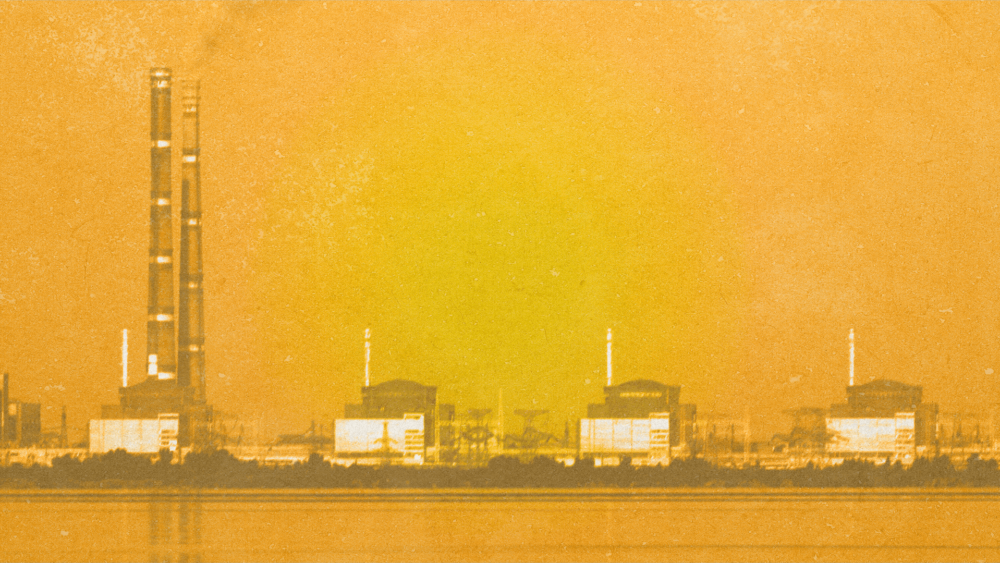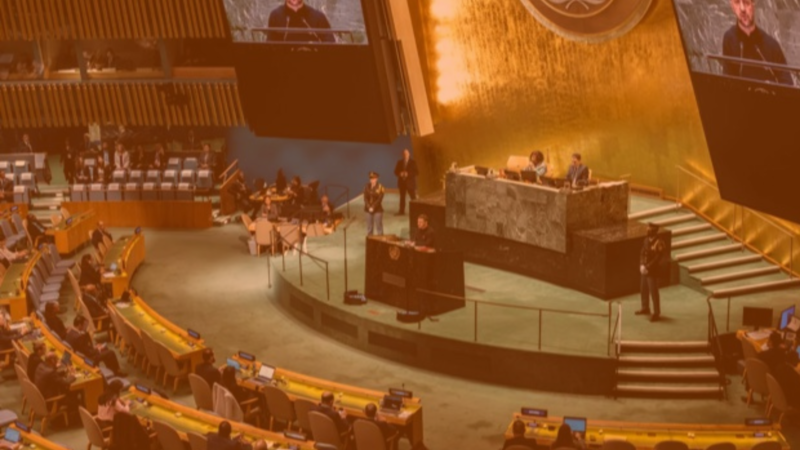As Europe’s largest nuclear power facility is the centre of a pre-emptive blame-game between Ukraine and Russia, learning from the past could prevent escalation of an already horrific conflict, regardless of where one’s affiliations lie
The fear of a nuclear fallout from the war in Ukraine has been tangible since it began, but never more so than in recent days with the Zaporizhzhia Nuclear Power Plant being centre stage for what could – for all the misguided fearmongering – truly become the trigger for World War III.
Ukrainian president Volodymyr Zelensky released a video stating that he had ‘intelligence’ of an imminent Russian attack on Europe’s largest nuclear power plant, claiming that explosives have been placed on the roof of the plant.
On July 4, the Ukrainian military’s General Staff echoed those allegations that “objects resembling explosive devices were placed on the outer roofs of the third and fourth power units” of the plant earlier that day.
Russia, on the other hand, has warned that the Ukrainian military is planning an attack of its own, “using long-range precision equipment and kamikaze attack drones” according to Renat Karchaa, an adviser to the head of Russian nuclear network Rosenergoatom.
What do we know?
There are four nuclear power plants situated on Ukrainian territory, with the Zaporizhzhia plant the only one under Russian control and the closest to Russia.
The plant has been under the control of Russian forces since March last year, and has been claimed by Rosatom, Moscow’s state nuclear power company while it continues to be operated by Ukrainian staff.
The plant has continued to send data for safety-related matters to the International Atomic Energy Agency (IAEA), a United Nations body.
The site was inspected on June 30 by IAEA director general Rafael Grossi, who said they “found no visible indications of mines or other explosives currently planted” at Zaporizhzhya Nuclear Power Plant but that they “still need additional access to carry out further such checks”.
Who stands to gain?
When it comes to the people who have the misfortune of living in a war-torn area, as in any conflict, there are no winners in this situation. Even more so when we are talking about the potential destruction of a nuclear power plant, as the harmful radiation and chemicals that would pour out of the plant could reach a radius of hundreds of kilometres.
On a geopolitical level, there are even further ramifications, as such a strike would escalate the war to its most volatile point, with a very real threat of nuclear war ensuing.
While it would be naïve to acquit Russia of any role in a potential attack, the idea of hitting a power station so close to home, and one that they control, as opposed to any of the other three plants in Ukraine, seems self-destructive.
An attack on the nuclear power plant would also risk radioactive contamination of Russian-controlled parts of Donbass and Crimea, particularly the latter’s water supply. More damaging for Russia would be the justification for retribution from NATO, given that if the radiation were to affect its member states, they would be compelled to respond accordingly.
Learning from the past
Nordstream
Recent history also arouses suspicion that it would be far more conceivable for a NATO-inspired, Ukrainian-backed, false-flag attack. The destruction of the Nordstream pipeline which has scuppered a decade-long, billion-dollar project of the Russians for the transferral of gas to Europe, is now all-but unanimously acknowledged as a NATO/US-led hit job.
Murmurs among European and American leaders of Russia’s involvement didn’t last long before reports such as the one from Pulitzer Prize winning American journalist Seymour Hersch which pointed to solid evidence of the contrary, as well as prior comments from US president Joe Biden and undersecretary of state for political affairs Victoria Nuland both vowing to destroy the pipeline, and general common sense leading to a near consensus of Western foul play.
Zelensky has frequently shown his overzealousness to point the finger at his adversary, seemingly believing that the end justifies the means, even if that means all-out nuclear war.
In October 2022, speaking to Sydney-based think-tank Lowy Institute, Zelensky called for “pre-emptive strikes” against Russia, “so they know what will happen to them” if they were to launch a nuclear offensive.
Zelensky responded that NATO should “make it impossible for Russia to use nuclear weapons” through “pre-emptive strikes, so they know what will happen to them if they do.”
Missile strike in Poland
Then, when a “Russian-made” rocket fell into Polish territory one month later, before any investigation took place, Zelensky – along with a host of like-minded Western politicians – were ‘certain’ it was Russia, and eagerly called for the trigger of Article 5.
The next day, it was proven that the missile was fired by Ukrainian forces.
Kakhovka Dam
Then, more recently, came the explosion that led to the fall of the Kakhovka Dam. A similar reaction to Nordstream ensued, as both sides denied blame, while the Western media had already drawn its conclusions: it was Russia.
But one has to ask why: much like Nordstream, destroying the Kakhova Dam would be self-sabotage of the highest order from a Russian perspective. In 2014, Ukraine cut off the water supply before Russia restored it in 2022 upon regaining the dam, in order to supply Crimea with water and power which it now controls.
In November 2022, Ukraine struck the dam in a bid to halt Russia’s offensive. General Andriy Kovalchuk, commander of the southern front, admitted to the Washington Post that they used US-supplied HIMARS missiles to attack the dam, and “even conducted a test strike with a HIMARS launcher on one of the floodgates at the Nova Kakhovka dam, making three holes in the metal to see if the Dnieper’s water could be raised enough to stymie Russian crossings but not flood nearby villages” and according to Kovalchuk “the test was a success”.
And ultimately, the drought that the destruction caused has made the Zaporizhzhia power plant far more accessible for Ukrainian forces, making any strikes able to be launched from much closer proximity than previously possible.
NATO Summit 2023
What’s crucial in this pre-emptive blame-game between Ukraine and Russia is the upcoming NATO Summit, to be hosted in Vilnius, Lithuania on July 11 and 12.
Here, leaders of the organisation and its member states will have the Ukraine war at the top of its agenda.
With Ukraine – or at least its government – desperate to join NATO, and with the feeling mutual, such an attack combined with the imminent NATO summit, would provide the perfect pretext. It would also serve other key goals, such as the push for the regime change they have long craved.
All these align perfectly with NATO’s objectives. While for Russia, Ukraine entering NATO is seen as simply unacceptable, the ultimate nail in the coffin in the already-violated Minsk agreements.
Conclusion
While debates can take place over who would be to blame for such an attack, or even choose to justify such an attack for whatever reason, they are ultimately redundant.
What is not debatable is that an attack on Europe’s largest nuclear power plant would cause destruction on multiple levels: both Russians and Ukrainians in the area, to the people in the surrounding regions who would eventually suffer from the outpour of toxic radiation and vast environmental damage.
Ultimately, it would result in an escalation that would dissolve any slim hopes for a peaceful resolution, opening the door to an unprecedented conflict of which, as ever, the only victors will be the arms manufacturers and the sociopathic politicians who are eager for this conflict to roll on.
Do you want to be informed of DiEM25's actions? Sign up here










